I Fixed the New York Times' Pro-Israel Headlines on Gaza
The paper's headlines go to great lengths to whitewash Israeli crimes against Palestinian civilians.
When a poll in March showed that only about half of Americans could correctly answer that more Palestinians had been killed in the war on Gaza than Israelis, many of those who have been following the conflict were stunned. After all, the gap between Israeli and Palestinian deaths is enormous. By early March, Israel’s war on Gaza had killed more than 31,000 Palestinians.
Perhaps, however, it’s not all that surprising, given the coverage of the war by U.S. mainstream media, which appears to be going to great lengths to help absolve Israel of its crimes and dehumanize Palestinians.
The New York Times has been particularly egregious in removing Israel’s criminal responsibility from the broader story. In April, the Intercept reported a Times memo leak in which the paper’s reporters were instructed to avoid words and phrases like “genocide,” “ethnic cleansing,” “occupied territory,” and “Palestine,” according to the Intercept.
To see the memo’s impact, you only have to look at the NYT’s headlines – something I’ve been doing since the war began. I've also been ‘fixing’ them so that they reflect the reality on the ground rather than covering it up.
Al-Mawasi Refugee Camp
Take the paper’s headline from a live blog update about the most recent Israeli massacre in Gaza’s Al-Mawasi camp, an area – designated a “safe zone” by Israel – that’s sheltering tens of thousands of displaced Palestinians. “Questions Swirl After Deadly Strike Targeting Hamas Commander,” the headline read.
There is no mention of Israel, which carried out the “deadly strike,” and the phrase “questions swirl” casts doubt on the nature of Israel’s attack. Instead of focusing on yet another Israeli massacre of civilians in a “safe zone,” the headline draws attention to the official Israeli point of view that a Hamas commander was the target. It fails to mention at least 90 Palestinians were killed.
The Times June 21 headline about an earlier Israeli massacre in the same camp wasn’t much better. “Strike on Area Where Displaced Gazans Were Camped Kills Up to 25,” it said.
The passive headline does not mention Israel, instead attributing the killing of Palestinians to a vague “strike.” Nor does it say that this wasn’t the first time Israel bombarded Al-Mawasi, among the areas where the Israeli military ordered Palestinians to go early in the war and after it invaded Rafah. The paper appears to go to painstaking lengths to avoid calling the area a “refugee camp” – another phrase Times reporters were told to avoid, per the Intercept.
It also uses “Gazans” as the catch-all term for all Palestinians in Gaza, when, in fact, more than half of the enclave’s population is made up of displaced Palestinians whose families were forced to leave their towns and villages during the 1948 Nakba.
UN School
Not attributing airstrikes in Gaza to Israel in headlines is a pattern. When an Israeli strike on June 6 killed Palestinian refugees sheltering at a UN school in Gaza, both the NYT headline and subheading failed to mention Israel. Stranger still, the headline referred to the UN school as a “former school.”
World Central Kitchen Attack
The initial Times story about the Israeli strike that killed seven World Central Kitchen aid workers in April also failed to mention Israel, instead calling the attack a “Gaza airstrike.” Later stories, however, did attribute the strike to Israel.
“Casualties” and “Lifeless”
A New York Times headline and subheading about another attack on two refugee camps in early November 2023 did not mention Israel and avoided the phrase “refugee camp,” calling the strike an “explosion” in a “dense neighborhood.” Making things worse, they used words like “casualties” and “lifeless” (yes, lifeless) to avoid saying Palestinians were, in fact, killed by Israel.
“Lives Ended”
Let’s not forget the infamous “Lives Ended in Gaza” headline from March.
It’s not that the Times doesn’t attribute strikes in headlines during wars. In its January headline about Russian attacks across Ukraine, the paper clearly states Russia struck Ukrainian cities and killed dozens of people.
Starvation
It is not only about airstrikes. The NYT, in my view, helps Israel evade responsibility for many of its crimes. A headline from March mentions “hunger and fear” that “stalk” Gaza but fails to point out that Israel is the reason Palestinians are, in fact, starving because it deliberately refuses to allow aid into the enclave.
Aid Workers
In a headline from last month, the Times again fails to mention that Israeli attacks have made Gaza the world’s deadliest place for aid workers.
Evacuation Orders
Just this month, the newspaper wrote a story about the toll of Israel’s repeated evacuation orders on Palestinians. The headline, however, again failed to attribute the orders to Israel and used a particularly odd phrase, “weakened Gazans.”
Annexation
When the Times reported leaked audio of Israeli ultranationalist Finance Minister Bezalel Smotrich telling settlers about a bid to cement Israel’s control of the West Bank, the Times headline neglected to reflect that such a plan would effectively – and illegally – annex the Palestinian territory.
Misleading by Design
These represent just a small sample of the numerous NYT headlines I’ve corrected over the last eight months. And it’s not just the New York Times. Many mainstream Western news outlets have failed Palestinians in their coverage of the war. I’ve ‘fixed’ headlines from Reuters, the BBC, ABC News, and others. But what makes the NYT so appalling is the paper’s status in the U.S. as one of the oldest and most respected publications – the so-called paper of record.
The Times did not answer Zeteo’s questions about its coverage of the war.
The language of the New York Times – and much of U.S. media – is misleading by design. The leaked NYT memo makes it clear that the paper has deliberately chosen what words can and cannot be used in its coverage of the war on Gaza. In another country, we might call it a form of censorship.
Language matters, and the words the news outlets use – especially in headlines – shape how people understand events. The media’s job is to inform the public about crimes against humanity and other human rights abuses, not cover them up.



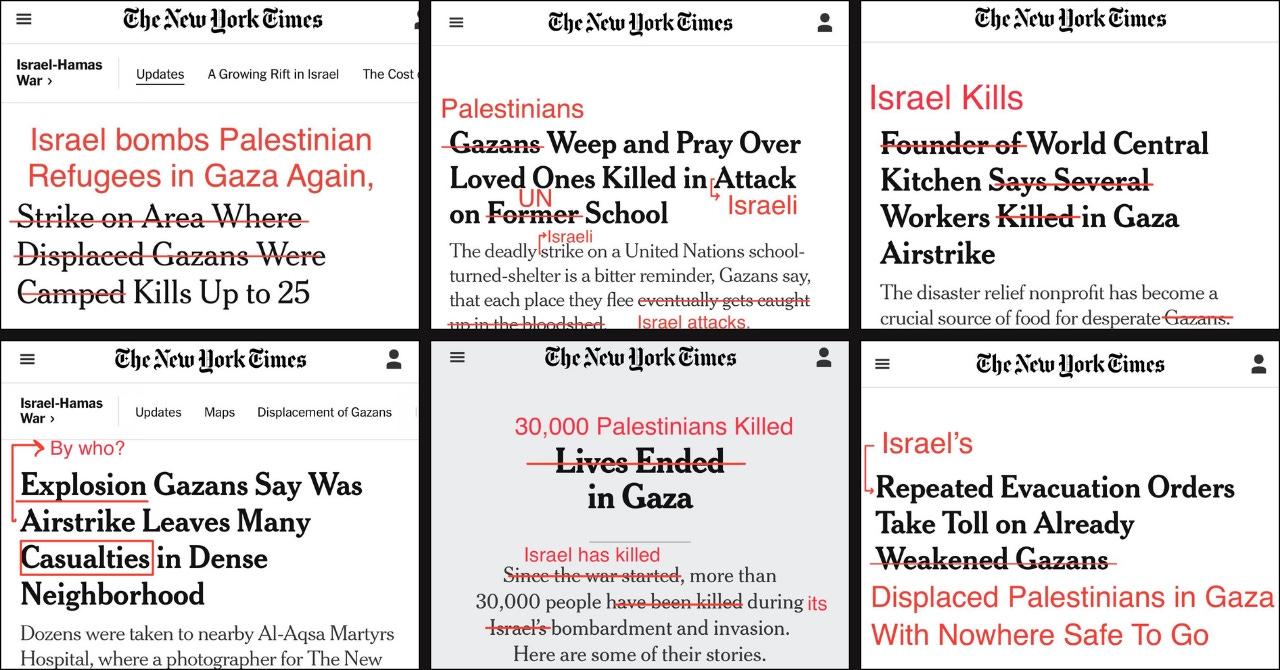
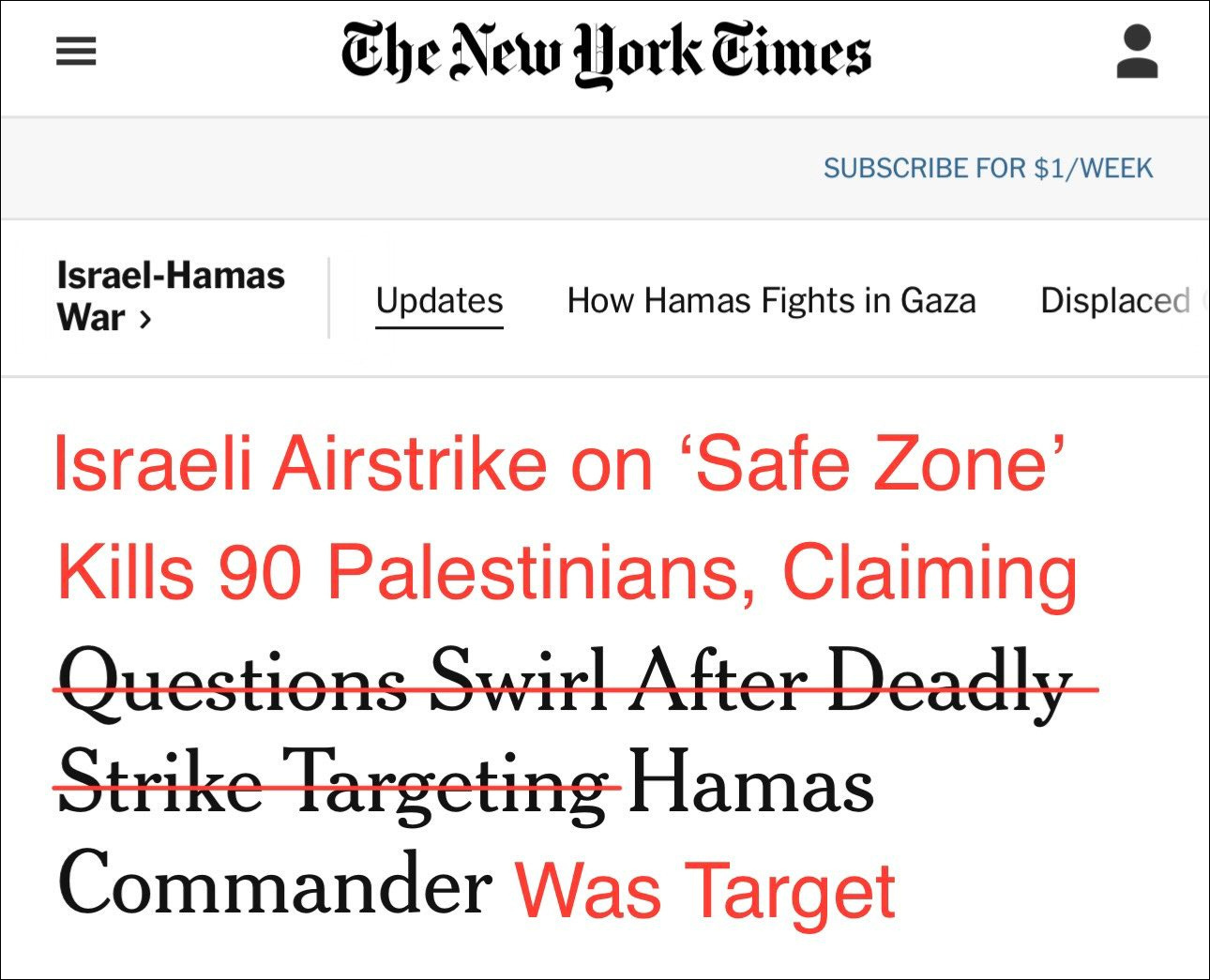

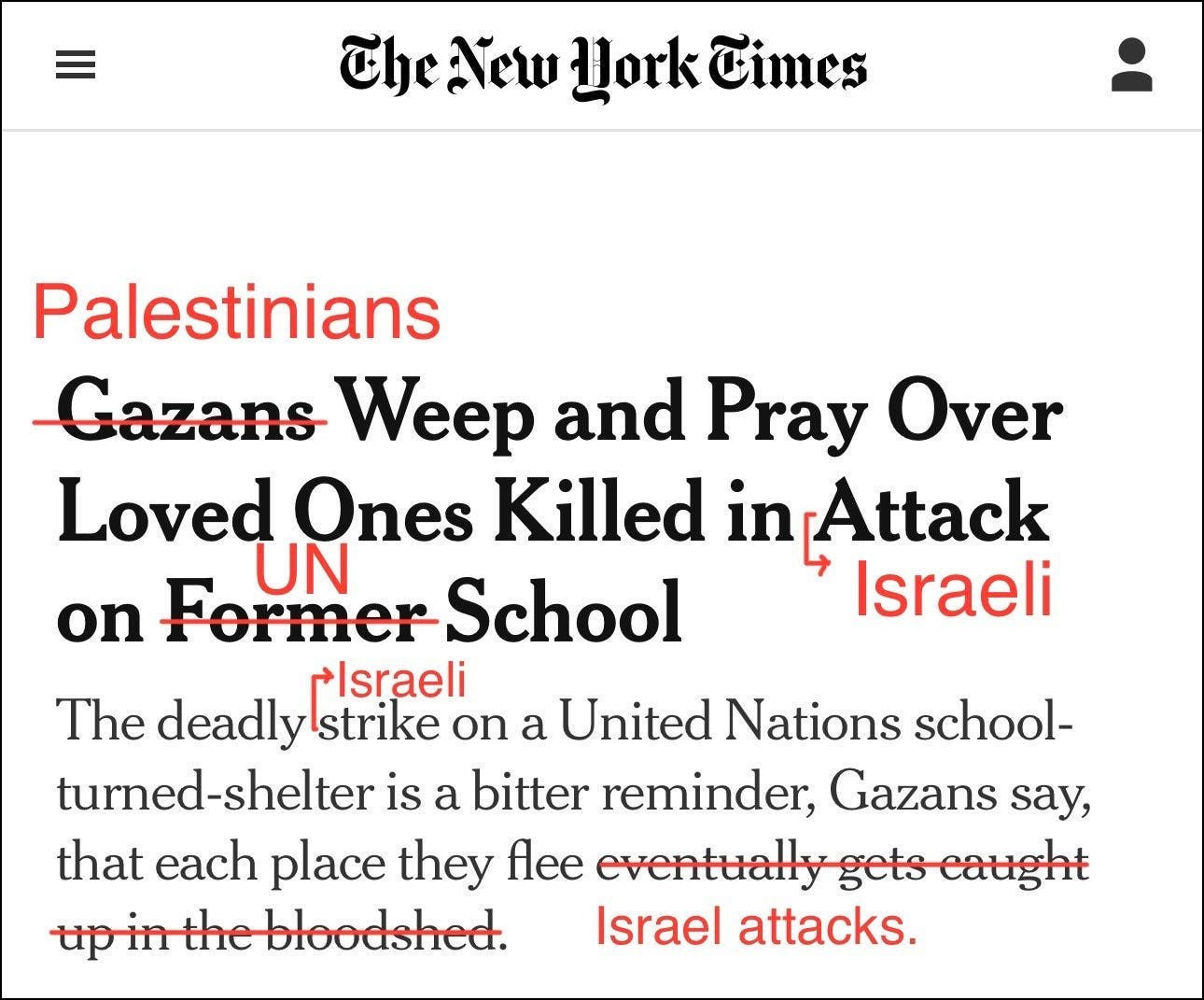
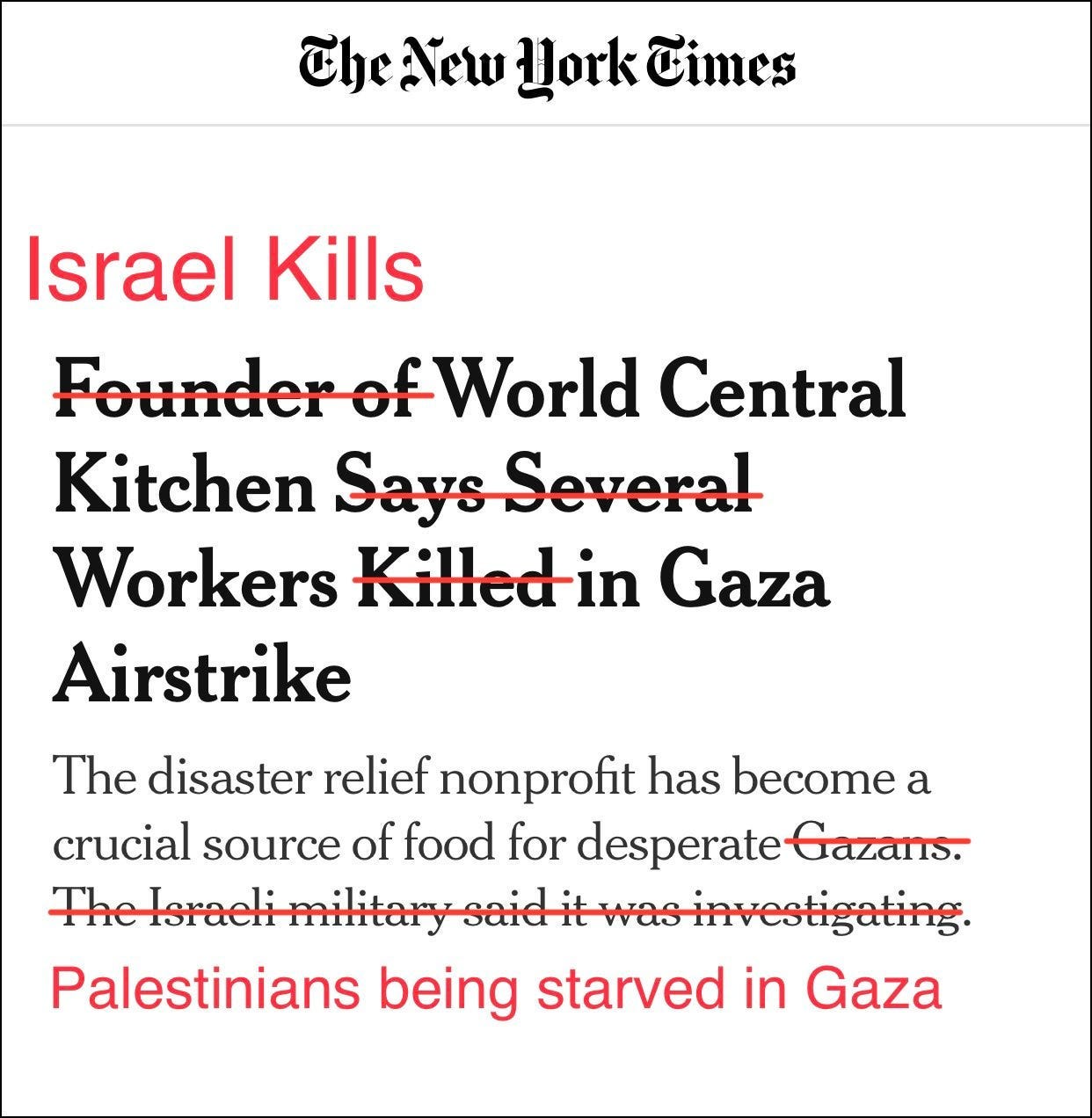
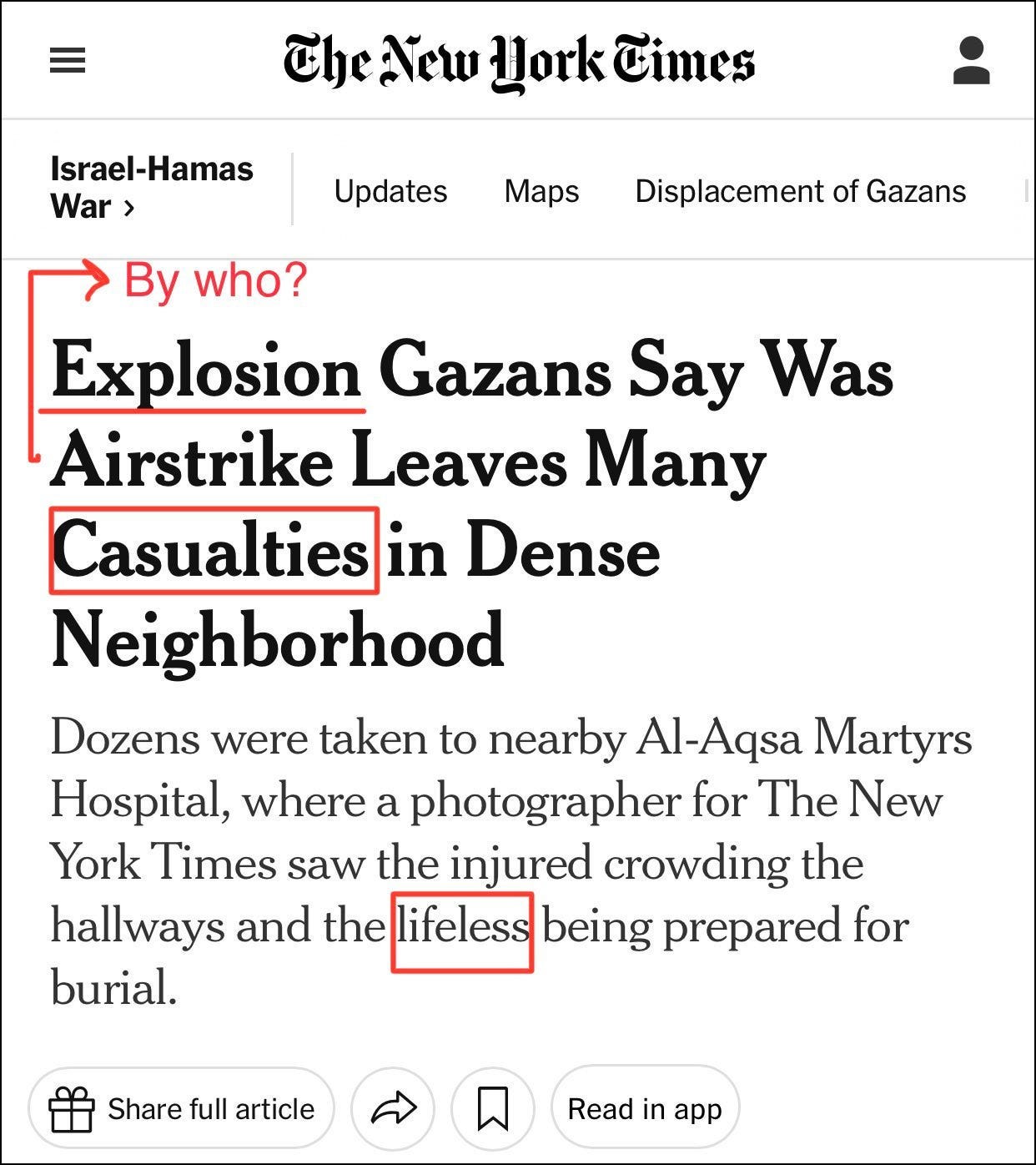
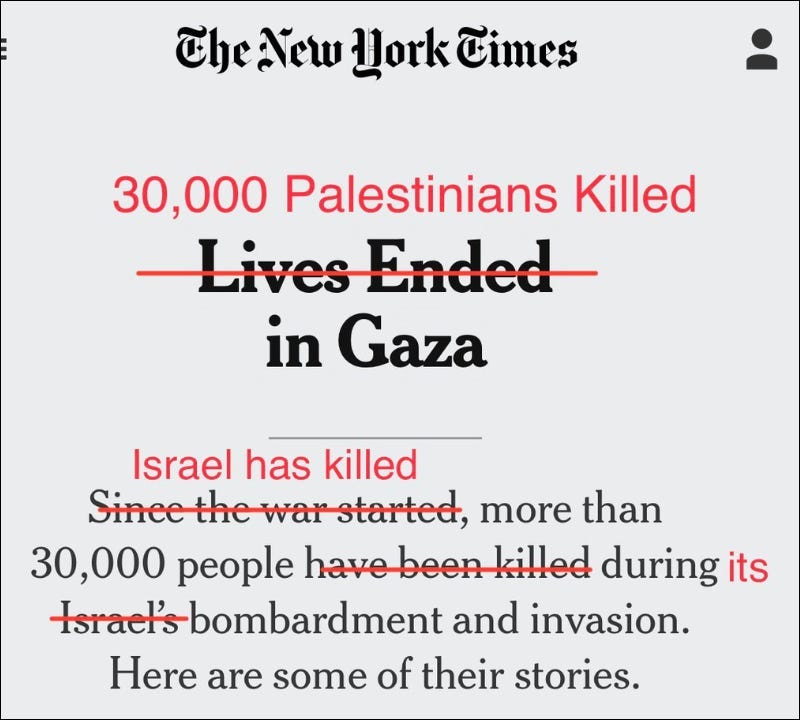
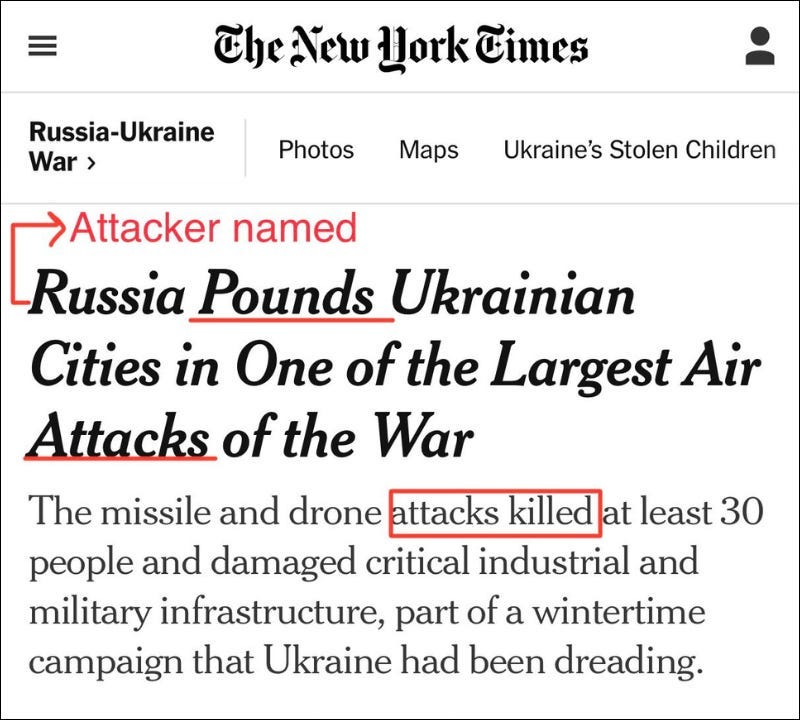





This is precisely why I cancelled my NYT subscription.
This is why I canceled my NYT subscription too! Thank you for such a clear analysis